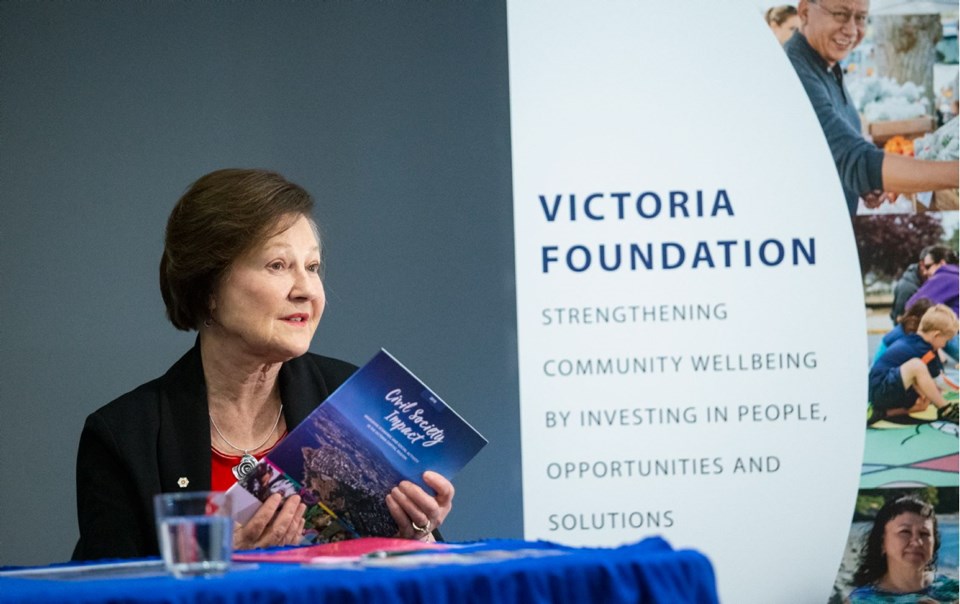For years, Victoria’s high-tech sector loved to bill itself as the region’s quiet industry, tucked away and saying little while recording impressive growth and high revenues.
Hard on the heels of the not-so-quiet tech sector’s most recent impact study showing it now boasts a $5.22-billion annual economic impact on the region, another sector is starting to make some noise.
If tech has been quiet until now, the charity sector has been mute. That is about to change with the release of an economic- impact study showing the charity sector — known in its circles as civil society — generated more than $4 billion in economic activity in the region in 2016.
A year in the making, the study, a partnership between the Victoria Foundation and the University of Victoria, analyzed the tax returns of 994 charitable organizations and found the total direct and indirect impact of those organizations to be $4.03 billion on the local economy, a level of spending that theoretically would support nearly 63,000 full-time jobs and more than $300 million in municipal taxes.
Sandra Richardson, chief executive of the Victoria Foundation, said the study proves what they already knew — that the civil society sector “was right up there with tourism and the tech sector” as one of the region’s most important economic drivers while having a strong social impact.
“We have long known about the value of civil society,” Richardson said, adding it is a vibrant economic driver that is essential to prosperity and well-being of the community.
“But until now we haven’t had the research or hard data to really back that up, leaving us at a disadvantage when talking about the sector and promoting the work of the hundreds of charitable organizations that work in our community,” she said.
Lead researcher Crystal Tremblay, assistant professor at UVic’s department of geography, noted the study is unique in that it not only looked at the economic activity, but at the social impact as well. “To have [economic impact] matched with social impact that’s important to give the full breadth of what [the sector] is doing,” she said.
Tremblay said the study measured a selection of local charitable organization’s actions against the United Nations’ “sustainable development goals” and found significant impact being made toward all 17 goals.
The 17 include ending poverty, ending hunger and achieving food security, combating climate change and achieving gender equality.
Tremblay said they used 80 in-depth surveys completed by local charitable organizations, and determined they had enough of a sample size to determine how organizations were responding to the different goals. “Ideally, we would have had 800, but this does give us a good snapshot of what our region is doing,” she said.
UVic business professor Brock Smith, who focused on the economic side of the research, said he was surprised at the sheer size of the sector.
“It is bigger than I thought it would be. It’s clearly an impactful sector, not only economically, but obviously the social contributions are huge,” he said.
He was also quick to note the numbers are solid. “This analysis is one of the strongest as every single organization in this sector reports its spending and revenue to [Canada Revenue Agency] so we were able to access that data to compile results,” he said.
Smith said he hopes the study will play a role in revitalizing the effort of volunteers, while encouraging donors to continue to support the organizations that provide the services on the front lines.
Richardson agreed, adding she sees it as a tool for the sector, as well as for the business community and government.
“This gives the community a sense of how important the sector is,” she said. “It’s a supportive tool for the sector, something they can boast about and say: ‘Darn right our organization matters.’”
David Lau, executive director of the Victoria Immigrant and Refugee Centre Society, said this kind of study will definitely get people to sit up and take notice.
He said it will give him the hard data to show elected officials just what organizations such as his bring to the table.



